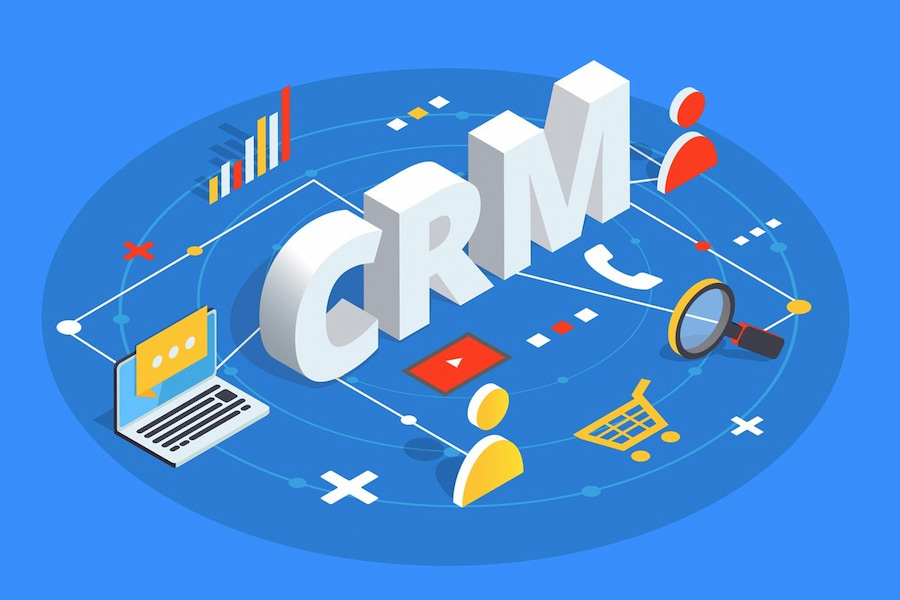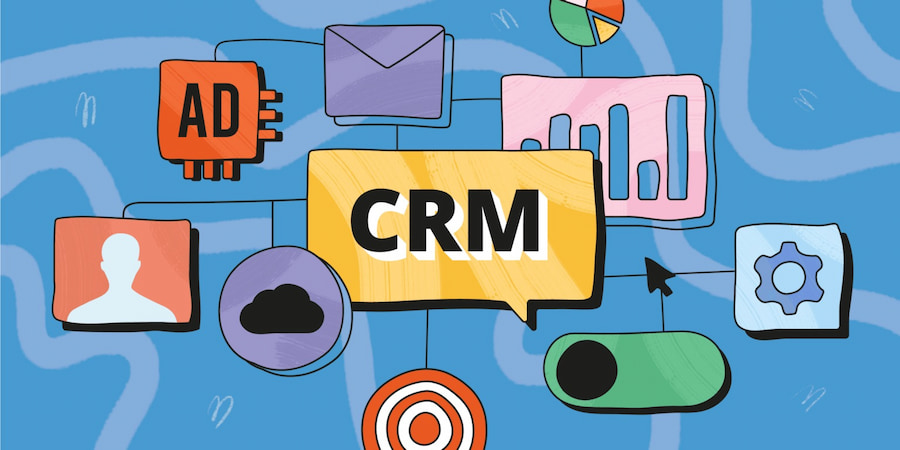Marketing needs to get the correct message in front of the right demographic at the correct time to be successful. To do this, you must first develop marketing strategies which speak directly to the requirements of both current and potential clients. Think about working with a professional CRM consultancy in Manchester if you’re looking to optimise your customer relationship management to improve client happiness and simplify your business operations. CRM software may help marketing teams in gathering and analysing information about audiences to create more effective campaigns.
Describe CRM
The term “customer relationship management,” or CRM, refers to the process of controlling communications with customers current as well as potential throughout a sale. CRM is the umbrella term for all approaches, techniques, and procedures which involve utilising data to create, enhance, and oversee relationships with clients. The software, technology, and programs that underpin CRM are also discussed.
What Does Marketing CRM Mean?
The advantage your company will have over the competition will grow as you learn more about your clients. Client information can assist your firm in enhancing and targeting its marketing and advertising initiatives, which can help you expand your business. CRM makes it possible for you to gather and arrange client data and pinpoint the tastes of your clients (such as what goods they require and prefer, the answers they are looking for, or their areas of potential or weakness).
CRM Capabilities to Enhance Marketing Initiatives
The particular CRM solutions that a company utilises for its marketing initiatives will differ based on the sector and size of the company. Nevertheless, the characteristics that follow are going to be advantageous to most businesses:
Centralized Database for Audience Information
CRM software centrally stores and organises client information, including contact details, calls and emails, feedback from clients, and sales operations. You can access, arrange, and analyse consumer information as you get it with the use of a central repository, which also makes it easier to spot trends, patterns, and insights (such as the most well-liked items, the most successful marketing strategies, and client demographics).
Targeting and Segmenting Client Groups
Clients can be divided into groups using CRM software based on a variety of factors, including demographics (such as age, location, job role, industry, and company size) as well as behaviours (such as recent and past purchases, email response rates, social media operation, and personal preferences).
With the help of this data, marketers may identify extremely specific client profiles and subsequently tailor their communications to appeal to those customers. Tailored business-to-business email marketing campaigns are another tool marketers may employ to grow their subscriber base, email marketing KPIs, and income.
Personalized Content Creation
You can personalise conversations with every individual you contact via the abundance of information that CRM software offers about your consumers. Individuals despise impersonal marketing communications which begin with a generic salutation like “Dear customer.” You may utilise data from your CRM application to build communications which refer to past and present clients by name.
To customise the message and attract their interest, you may also include the customer’s position and firm. You can customise a message for every client if you have more details about them, such as their shopping history, choices, and notes from prior contacts.
For instance, you may talk about concepts and possibilities, offer relevant details, and shape the discussion to fit a particular client. More response rates, improved brand perception, and greater revenue are all the outcomes of this degree of personalised content.
Connection to Marketing Outlets That Is Seamless
Businesses may exchange client information among various divisions, including sales, marketing, and client service, by using CRM software. The ability to utilise audience information across different divisions facilitates the discovery of customer insights & the development of personalised messages.
Without a CRM, it’s simple for knowledge in many departments to be duplicated, missed, or lost, but a corporate CRM enables the marketing team to create and analyse customer reports with comprehensive information. Additionally, it guarantees that communications are targeted and consistent within particular channels.
The Capacity to Design, Test, Monitor, and Enhance Marketing Strategies
Your company may utilise the data a CRM gathers to develop specific advertising campaigns, test those initiatives and various campaign components (such as headers, offers, and visuals), and monitor the outcomes for every campaign.
You may assess how well each campaign is performing using a range of indicators, including email open rates, new subscribers, & purchases, and then make changes to the campaign to enhance outcomes (or stop running campaigns which are not working). You are going to be able to maximise the utilisation of your marketing money as a result. Reusing marketing campaigns which have been successful in the past is another advantage of CRM software.
You may eliminate any uncertainty about where to invest your marketing budget by using information and research from earlier advertising efforts to show their effectiveness. Your marketing resources are going to be more effective if you can reuse campaigns, templates, forms, and various other assets for new clients and regions.
Final Words
Consider your specific needs before choosing a CRM program because the best CRM software for your company is going to rely on them.
Also, read this: Where Is php.ini in WordPress Business Sites?


